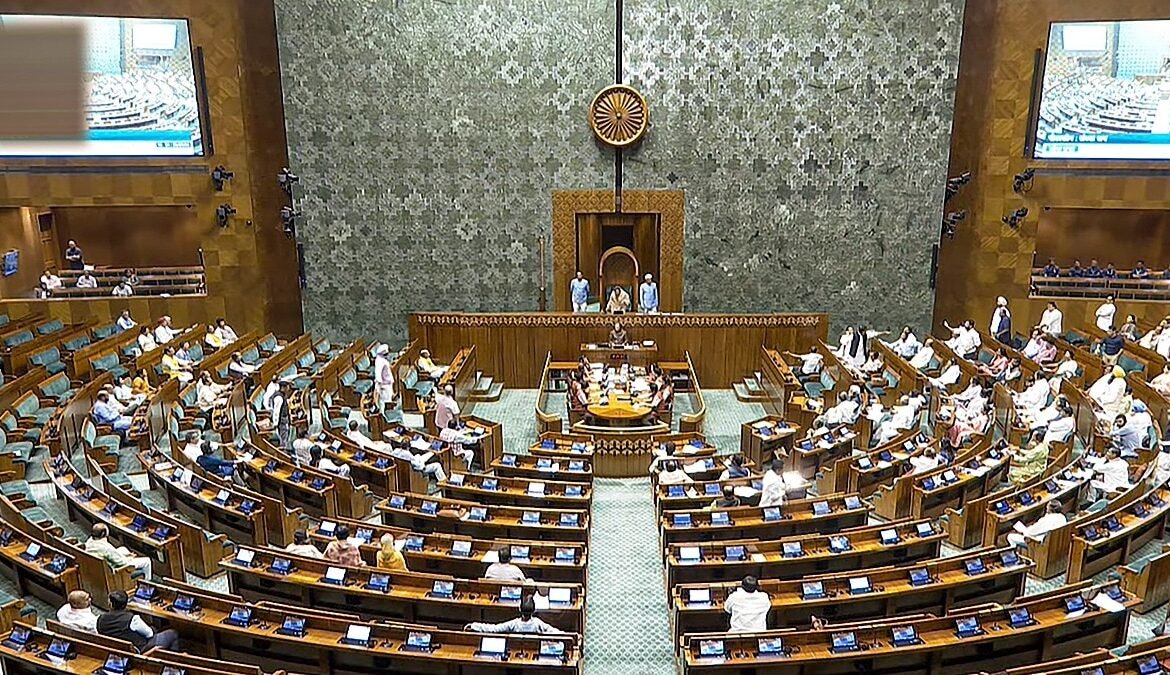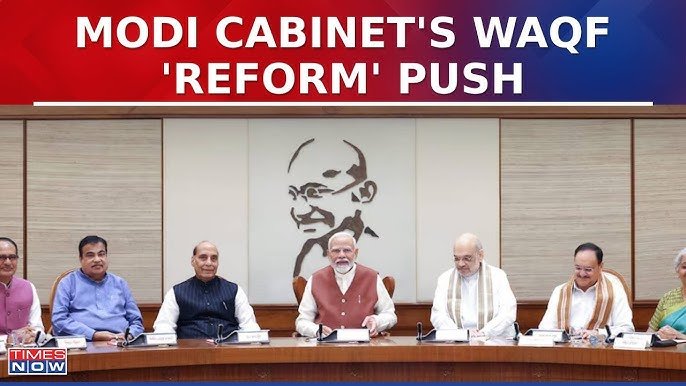In a landmark move, the Modi government has proposed a series of amendments to the Waqf Act aimed at curbing the extensive powers held by Waqf Boards and ensuring thorough verification of Waqf properties. This initiative is poised to have far-reaching legal and socio-political implications. This comprehensive blog will delve into the existing legal framework governing Waqf properties, the specific amendments proposed, the rationale behind these changes, and their potential impact on stakeholders.
Understanding the Waqf Act
Historical Context
The concept of Waqf has its roots in Islamic law, where a Waqf is an endowment made by a Muslim for religious, educational, or charitable purposes. The management of Waqf properties in India is governed by the Waqf Act of 1995, which replaced earlier legislation to provide a more streamlined and comprehensive legal framework.
Key Provisions of the Waqf Act
- Establishment of Waqf Boards: The Act mandates the formation of Waqf Boards in each state, tasked with the administration and management of Waqf properties.
- Registration of Waqfs: All Waqfs must be registered with the respective state Waqf Boards, ensuring legal recognition and oversight.
- Survey of Waqf Properties: The Act requires periodic surveys of Waqf properties to identify, record, and register them.
- Powers of Waqf Boards: Waqf Boards are empowered to manage Waqf properties, resolve disputes, and take legal action to protect Waqf assets.
- Audit and Accountability: The Act includes provisions for the regular audit of Waqf accounts to ensure transparency and accountability.
The Need for Reform
Despite the comprehensive framework provided by the Waqf Act, several issues have persisted:

- Arbitrary Claims: Waqf Boards have been criticized for making arbitrary claims on properties, often leading to prolonged legal disputes and social unrest.
- Lack of Transparency: The management of Waqf properties has frequently been opaque, with allegations of corruption and mismanagement.
- Inadequate Representation: There has been a noticeable lack of representation for women and other marginalized groups within Waqf Boards.
- Legal Disputes: The ownership and management of Waqf properties have been the subject of numerous legal battles, straining the judicial system and creating uncertainty.
Proposed Amendments: An Overview
In response to these challenges, the Modi government has cleared approximately 40 amendments to the Waqf Act. These amendments aim to address the aforementioned issues and introduce several key changes:
- Mandatory Verification of Property Claims: All claims on properties by Waqf Boards will be subject to mandatory verification to ensure their legitimacy.
- Control Over Sweeping Powers: The extensive powers of Waqf Boards to claim any property and delay surveys will be curtailed.
- Tribunal for Dispute Resolution: A dedicated tribunal will be established to ratify the final decisions of Waqf Boards and provide a forum for resolving disputes.
- Representation for Women: Women will be given representation in both central and state Waqf Boards, promoting inclusive governance.
Legal Implications of the Proposed Amendments
Mandatory Verification of Property Claims
One of the most significant proposed changes is the mandatory verification of property claims made by Waqf Boards. This amendment is designed to prevent arbitrary claims and ensure that only legitimate Waqf properties are recognized. The verification process will involve:
- Documentation: Waqf Boards will be required to provide comprehensive documentation to support their property claims. This includes historical records, ownership documents, and any relevant legal agreements.
- Third-Party Verification: An independent body or agency will be tasked with verifying the claims to ensure transparency and impartiality. This will likely involve a combination of governmental and non-governmental entities to ensure a balanced and thorough review process.
- Legal Scrutiny: Verified claims will be subject to legal scrutiny to prevent disputes and litigation. This will include a review by legal experts to ensure compliance with existing laws and regulations.
Control Over Sweeping Powers
The proposed amendments seek to curtail the sweeping powers of Waqf Boards to claim any property and delay surveys. This will involve:
- Clear Guidelines: The government will establish clear guidelines for Waqf Boards to follow when making property claims. These guidelines will specify the criteria and process for claiming properties as Waqf assets.
- Time-Bound Surveys: Surveys of Waqf properties will be time-bound to prevent delays and ensure timely identification and registration of Waqf assets. This will likely involve setting strict deadlines for the completion of surveys and the submission of reports.
- Accountability Mechanisms: Waqf Boards will be held accountable for any misuse of their powers, with legal consequences for violations. This will include penalties for non-compliance and mechanisms for addressing grievances and complaints.
Establishment of a Tribunal
The establishment of a tribunal to ratify the final decisions of Waqf Boards and resolve disputes is a significant legal reform. The tribunal will:
- Hear Appeals: The tribunal will hear appeals against the decisions of Waqf Boards, providing a legal remedy for aggrieved parties. This will include the power to review and overturn decisions if they are found to be unjust or unlawful.
- Ensure Fairness: The tribunal will ensure that the decisions of Waqf Boards are fair, transparent, and in accordance with the law. This will involve a thorough review process, including the consideration of evidence and legal arguments from all parties involved.
- Reduce Litigation: By providing a dedicated forum for dispute resolution, the tribunal will reduce the burden on regular courts and expedite the resolution of Waqf-related disputes. This will help to streamline the legal process and ensure timely justice for all parties involved.
Representation for Women
The proposed amendments will ensure that women are given representation in both central and state Waqf Boards. This will involve:
- Inclusive Governance: The inclusion of women in Waqf Boards will promote inclusive governance and ensure that diverse perspectives are considered in decision-making. This will help to address the unique needs and concerns of women and other marginalized groups.
- Legal Mandate: The representation of women will be mandated by law, with clear provisions for their appointment and participation in Waqf Boards. This will include specific quotas and guidelines to ensure adequate representation.
- Empowerment: The representation of women will empower them to play a significant role in the management and administration of Waqf properties. This will help to promote gender equality and social justice within the Waqf system.
Potential Impact of the Proposed Amendments
The proposed amendments to the Waqf Act have the potential to bring about significant changes in the management and administration of Waqf properties. The key impacts include:
- Enhanced Transparency: The mandatory verification of property claims and the establishment of a tribunal will enhance transparency and accountability in the management of Waqf properties. This will help to build public trust and confidence in the Waqf system.
- Reduced Disputes: Clear guidelines and time-bound surveys will reduce disputes and litigation over Waqf properties. This will help to streamline the legal process and ensure timely resolution of conflicts.
- Inclusive Governance: The representation of women in Waqf Boards will promote inclusive governance and ensure that diverse perspectives are considered in decision-making. This will help to address the unique needs and concerns of women and other marginalized groups.
- Legal Clarity: The proposed amendments will provide legal clarity on the powers and functions of Waqf Boards, reducing ambiguity and enhancing compliance with the law. This will help to ensure that Waqf Boards operate within the legal framework and uphold the principles of justice and fairness.
Challenges and Concerns
While the proposed amendments are a step in the right direction, they also present certain challenges and concerns. These include:
- Implementation: The effective implementation of the proposed amendments will require significant resources, coordination, and oversight. This will involve training and capacity-building for Waqf Boards, as well as the establishment of new mechanisms and processes.
- Resistance from Stakeholders: The proposed changes may face resistance from certain stakeholders, including Waqf Boards and political parties. This will require careful management and communication to address concerns and build consensus.
- Legal Challenges: The proposed amendments may be challenged in courts, leading to prolonged litigation and delays in implementation. This will require robust legal strategies and support to defend the amendments and ensure their successful implementation.
- Impact on Minority Rights: The proposed changes may be perceived as targeting the Muslim community, leading to concerns about minority rights and religious freedom. This will require careful consideration and balancing of interests to ensure that the amendments are fair and just for all stakeholders.
The proposed amendments to the Waqf Act by the Modi government represent a significant legal reform aimed at curbing the powers of Waqf Boards and ensuring the verification of Waqf properties. These changes have the potential to enhance transparency, reduce disputes, and promote inclusive governance. However, their effective implementation will require careful planning, coordination, and oversight. As the government moves forward with these reforms, it will be essential to address the concerns of various stakeholders and ensure that the amendments are implemented in a fair and transparent manner.
The legal landscape governing Waqf properties is set to undergo significant changes, and it will be crucial for all stakeholders to stay informed and engaged in the process. This blog has provided an in-depth analysis of the proposed amendments and their legal implications, and we will continue to monitor developments in this area and provide updates as the situation evolves.








Awesome page with genuinely good material for readers wanting to gain some useful insights on that topic!
This is some awesome thinking.